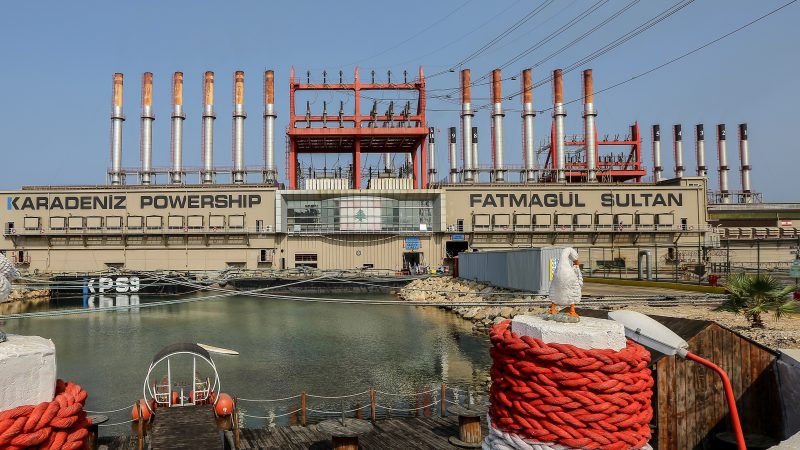
By Anders Lorenzen
Nothing seems to be able to change Germany’s mind in even just slightly delaying their nuclear phaseout.
Their shambolic, unrealistic and highly ideological energy policy has become even more visible during the war in Ukraine.
The country seems so obsessed with ending nuclear power even at the cost of climate action and of Russia’s ability to carry on their cruel war in Ukraine.
Vanity project
The government of Germany’s next vanity project is a new oil infrastructure project.
In their efforts to secure emergency energy infrastructure for the winter, and in the wake of the reduced gas supply from Russia as well as the nuclear shutdown, Germany has come up with the draconian and inefficient idea of floating power plants which will run on oil.
The policy decision taken by the country, which is now finally starting to anger much of the European Union (EU), is not rocket science. And the situation could be completely avoided by just slightly delaying its nuclear shutdown.
These are extreme energy policies which can be compared with any of the unintelligent decisions taken by the Trump Administration. There is no risk from Germany’s nuclear power plants, and they’re being closed down way before the end of their working lives. The decision can only be put down to selfish acts and highly emotional policies.
In addition, even though Germany has been warned about multi-hour blackouts, nothing is changing its position. This policy is a kick in the teeth to the people of Ukraine, a betrayal of its climate commitments, and an expression of silly and poor economics which no decent economist could back. Closing down any energy-generating capacity before its end-of-life is simply irresponsible economics.
A bad exchange
Many climate advocates around the world, whether they are for or against nuclear energy, would find it hard to stomach Germany phasing out low-carbon energy capacity and replacing it with high-carbon capacity. It does not take a maths degree to work out that it is a pretty bad exchange.
Under the leadership of Angela Merkel, a nuclear exit law was signed into law which stipulates that lower-risk technologies must be used if available. The wise heads in the German government have come up with power barges as the solution. However, it depends on how one calculates those risks, and science indicates that there is currently no real risk in continuing to operate Germany’s nuclear power plants. But there is indeed a real risk in opening up new fossil fuel infrastructure. Does the German government really need to be reminded of how recently the country was hit by fatal and devastating climate-fueled floods?
As there is growing frustration within the EU with Germany’s lack of compromise in rolling back their nuclear-phaseout so now it is time for the leadership of the block to put pressure on the German government.
For years Germany had been able to hide behind the illusion that they were a global leader in tackling climate change. But after years of investments in solar and wind, they have failed to get their emissions under control, and instead, they have been increasing both coal mining and their imports of coal from Poland.
And at the same time, they have been purchasing more oil and gas from Russia and other countries. The reason for this action is primarily their nuclear phaseout and complete mismanagement of their energy capacity and grid distribution system.